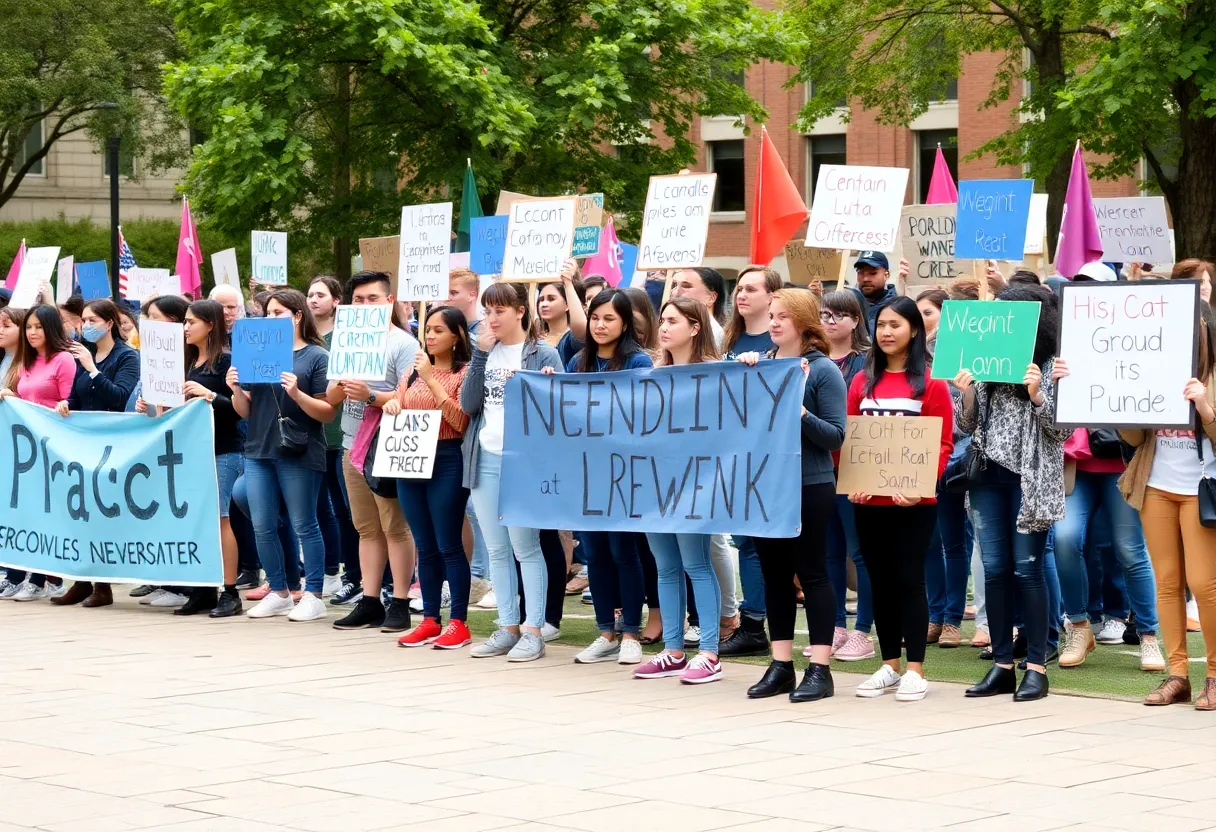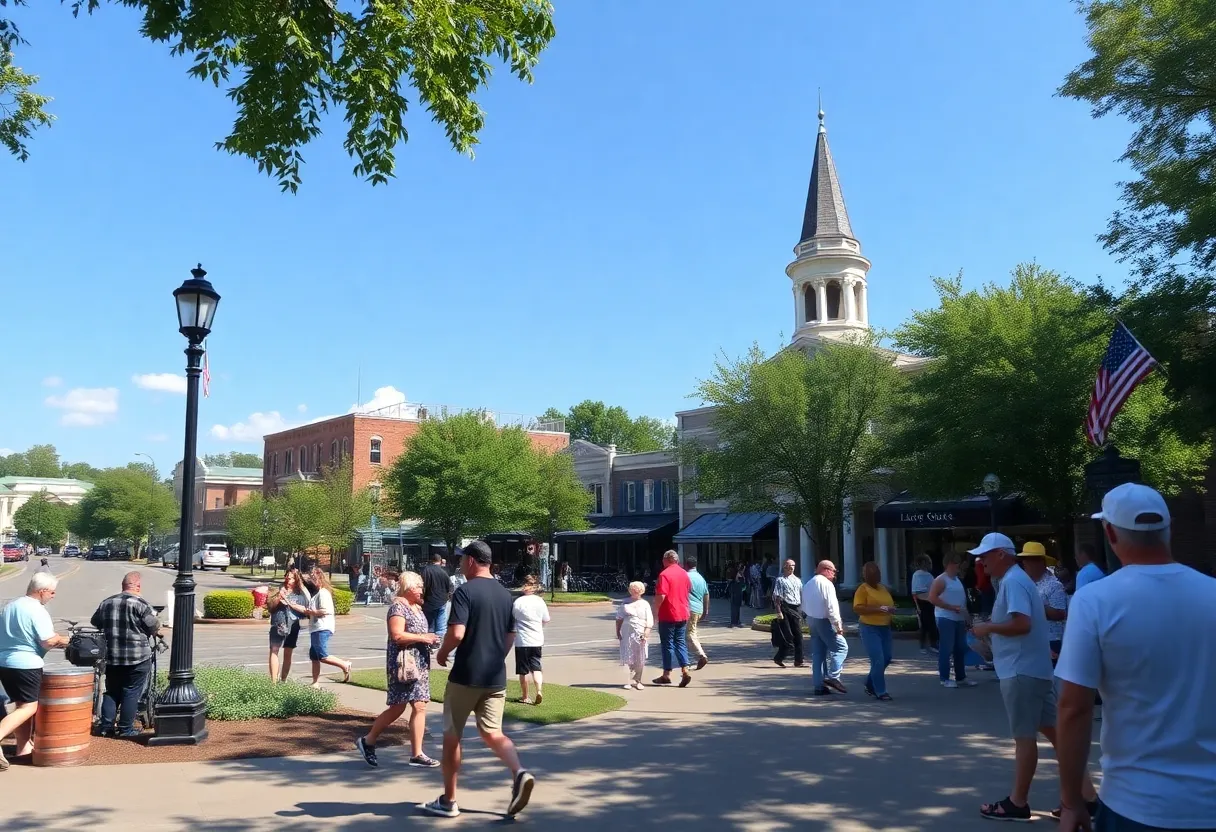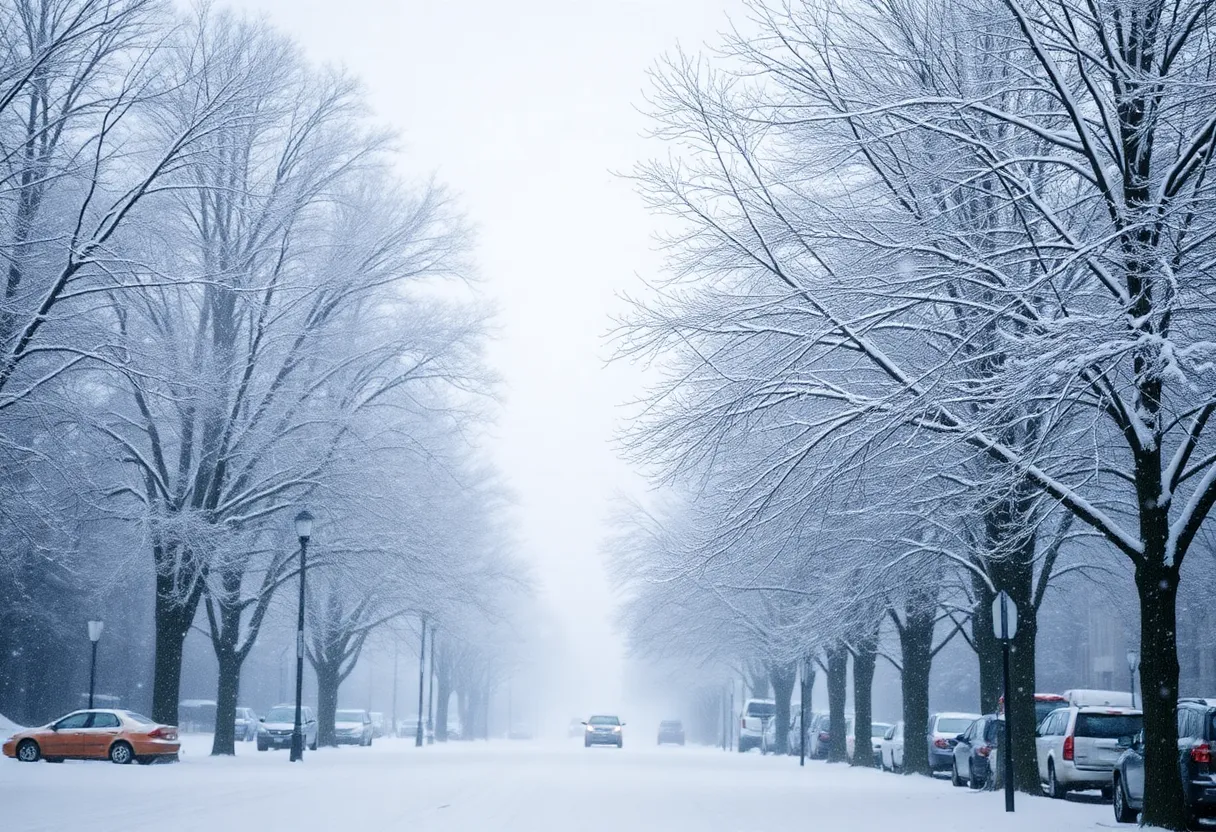News Summary
Columbia University is experiencing heightened tensions as pro-Palestinian protests draw national attention and involve federal scrutiny of international students. The escalating pressure surrounding these demonstrations has created an environment of fear for students, particularly those from abroad. Amid concerns for free speech and academic freedom, the university has implemented stricter policies and policies, affecting students’ ability to express dissent. The situation underscores a growing national debate on student activism and the implications of political policies on campus.
Columbia University Students Face Unprecedented Pressure Amid Protests
In the bustling city of Manhattan, tensions have escalated at Columbia University following a series of protests surrounding pro-Palestinian demonstrations. These events have not only sparked debates within the academic community but also caught the attention of federal agencies, resulting in serious repercussions for international students.
Protests and Law Enforcement Response
The protests began to intensify on April 30, 2024, as a group of pro-Palestinian activists boldly took over a building on campus. The ensuing chaos drew the involvement of law enforcement, who employed a tactical vehicle to ensure the site was cleared of protesters. The protestors were not alone in their struggle; some prominent figures, such as Mahmoud Khalil, an activist and legal U.S. resident, became key personalities in these demonstrations.
Heightened Scrutiny of International Students
Moving forward, the Trump administration’s policies have led to an alarming increase in scrutiny of international students involved in these protests. Within the academic circle, fears are mounting, particularly among international students who now feel uncomfortable attending classes or events, uncertain of the potential repercussions stemming from their involvement in activism.
In early March, Mahmoud Khalil became one of the first high-profile arrests linked to these policies, leading to his detention in a federal facility in Louisiana on accusations tied directly to his protests. Such actions mark the beginning of a concerning trend, where even peaceful expression of dissent could lead to deportation or visa revocation. Another international student, Ranjani Srinivasan, faced a similar fate, having her visa revoked due to allegations that she advocated for violence.
Impact on Free Speech and Academic Freedom
The implications of these policies are profound. Faculty members and students alike are increasingly worried about the climate of free expression on campus. An atmosphere of fear prevails, where many international scholars feel pressured to steer clear of discussing controversial subjects due to concerns regarding their immigration statuses. Reports indicate that even students at other institutions, like Louisiana State University, hesitate to share their political viewpoints online for similar reasons, coinciding with rising levels of anxiety in a politically charged environment.
Federal Investigations and New Policy Implementation
In light of the ongoing federal crackdown, Columbia University has felt the pressure to react. Recent adjustments in campus policies now impose stricter regulations on protests and increase monitoring of student activities. The university’s Graduate School of Journalism has highlighted a significant rise in anxiety among its international student body, amplifying concerns around the safety of exercising their right to free speech.
Moreover, the ACLU has voiced warnings about the potential danger this crackdown poses to free speech, particularly for non-U.S. citizens who engage in political discourse. The growing concerns have also led to ongoing federal investigations at various universities across the United States, with a keen focus on how institutions address the rights and safety of their Jewish students during protests.
Nationwide Activism and Support for Students
In response to the treatment of activists like Khalil, solidarity among students has surged, leading to nationwide protests advocating for his release. This mobilization demonstrates a marked shift in student engagement levels, with many now rallying in support of their peers who have faced severe repercussions simply for voicing their opinions.
As the landscape of academic freedom continues to shift under the weight of political pressure, Columbia University’s latest measures reflect not just an institutional response but also a broader struggle between students’ rights and the evolving political climate. It remains to be seen how this will affect the academic environment moving forward, but one thing is clear: the voice of the student body is becoming increasingly unified, standing up against what they perceive as an infringement on their freedom of expression.
Deeper Dive: News & Info About This Topic
HERE Resources
Columbia College Introduces New Division of Education
Columbia City Council Declares March 2025 Social Work Month
Local Living: Bright Outlook on Affordable Housing
Federal Court Transfers Case of Palestinian Activist to New Jersey
Lexington Man Arrested on Multiple Charges Following Dollar General Incident
Trump Administration Intensifies Crackdown on Pro-Palestinian Protests
South Carolina Executes Inmate by Firing Squad in Historic Event
Columbia University Expels Students After Hamilton Hall Protests
West Columbia’s Meeting Street Safety Upgrade Planned
Irmo Man Charged for Threatening President Trump
Additional Resources
- The New York Times
- Wikipedia: Protests in the United States
- AP News
- Google Search: Columbia University protests
- CNN
- Encyclopedia Britannica: Protest
- The Nation
- Google News: Columbia University activism
- Fox News
Author: STAFF HERE LEXINGTON WRITER
The LEXINGTON STAFF WRITER represents the experienced team at HERELexington.com, your go-to source for actionable local news and information in Lexington, Fayette County, and beyond. Specializing in "news you can use," we cover essential topics like product reviews for personal and business needs, local business directories, politics, real estate trends, neighborhood insights, and state news affecting the area—with deep expertise drawn from years of dedicated reporting and strong community input, including local press releases and business updates. We deliver top reporting on high-value events such as Woodland Art Fair, Crave Food and Music Festival, and Railbird Festival. Our coverage extends to key organizations like Commerce Lexington and Blue Grass Community Foundation, plus leading businesses in education, manufacturing, and technology that power the local economy such as University of Kentucky, Toyota Motor Manufacturing, and Lexmark. As part of the broader HERE network, including HEREBowlingGreen.com and HERELouisville.com, we provide comprehensive, credible insights into Kentucky's dynamic landscape.





